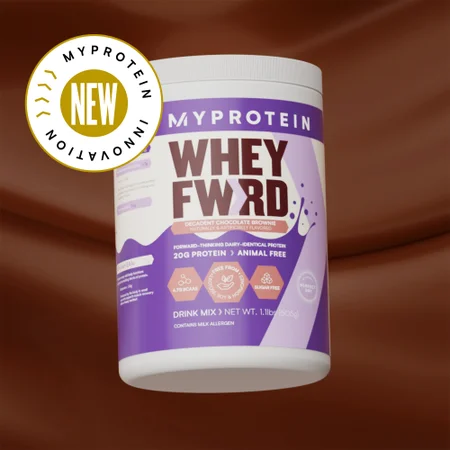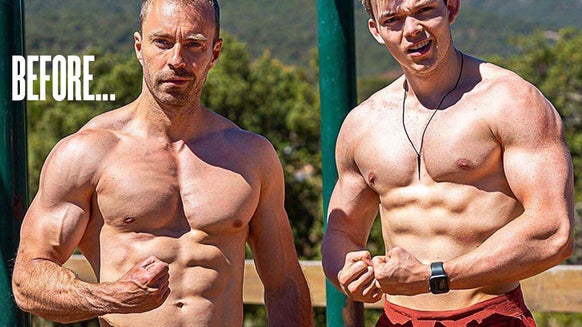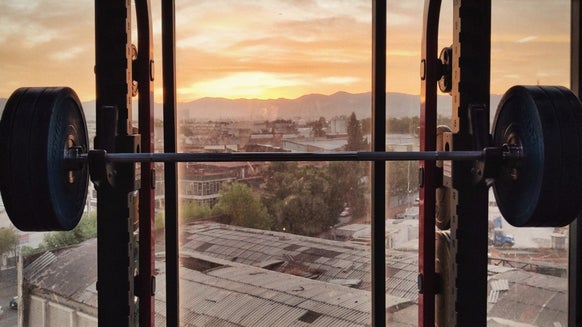
For some reason, the myth persists that cardio leads to muscle loss. But the truth is that cardio can be a crucial part of a well-rounded muscle-building program, helping to boost mass as well as offering plenty more benefits to athletic performance and overall health.
Benefits of Cardio for Muscle Growth
Cardio does more than just burning calories, including helping to build muscle. Here’s how:
Improved Energy Metabolism
Cardio can help improve cell efficiency, improving energy production during intense workouts and recovery. By boosting cell mitochondria, cardio increases the muscles’ ability to synthesize energy, allowing for more intense workouts. Additionally, the improved ability to buffer lactate can lead to more muscle growth.
Increased Fat Loss
On top of increased energy, cardio also helps reduce muscle fat. This is helpful because too much body fat can impede muscle-building.
Increased Blood Flow
Blood flow is the lifeblood of muscle development. Through increased blood flow, cardio ensures the muscles receive all the nutrients they need for growth and recovery.
Use It or Lose It
Muscles need to be used regularly to stay in top condition. Sedentary lifestyles lead to muscle breakdown, so cardio is one way to make sure your muscles stay active.

Muscle Building Cardio Exercises
High-Intensity Interval Training (HIIT)
HIIT consists of short bursts of intense activity followed by brief periods of rest. The aim is to get your heart rate up quickly, allow your body to quickly recover, then repeat.
You can target any muscle group with HIIT — try variations like EMOM, Tabata, or hard/light intervals on the step machine.
EMOM: Perform one exercise or a range of them every minute on the minute for 10 minutes. Try 10 burpees EMOM, or try 5 press-ups, 5 squats, and 5 leg raises EMOM.
Tabata: Alternate 20 seconds of work, followed by 10 seconds of rest, repeated 8 times for each exercise (total 4 minutes) for 4 different exercises (mountain climbers, jumping jacks, squat jumps, and plyo press-ups).
Hard-light intervals: On the step machine, alternate 30 seconds of max-effort work with 30 seconds of low-effort work for a total of 15 minutes.
Walking Lunges
Walking lunges combine strength training and cardio. They stretch the hip flexors, engage the core, and activate many other commonly neglected leg muscles in the posterior chain.
Incorporate walking lunges into your routine by lunging around a 400m running track as fast as possible or by lunging from one end of the gym to the other after a lifting set.
Sled Drags/Pushes/Pulls
Sled training is a great way to build muscle and burn fat. It’s versatile, allowing for all sorts of exercises targeting different muscle groups, and it’s also low-impact, meaning it’s easy on the joints and ligaments.
Push a heavy sled as fast as possible for 20-40m (or 10-20 seconds), rest for 1-2 minutes, and repeat for 5 sets.
Or alternate pushing and pulling a moderately heavy sled for 50m continuously for 10 minutes.
Loaded Carries
Loaded carries are simple: pick up something heavy and carry it to build core stability and improve your grip and strength in your forearms, biceps, triceps, shoulders, traps, upper back, abs, and obliques.
You can carry objects at your sides, over your head, or in front of you, and you can use barbells, kettlebells, sandbags, and medicine balls.
Carry a heavy object 50-100m, rest for between 30 seconds and 1 minute, and repeat for 10 sets.
Or carry a heavy object as far as you can in 15 seconds, rest for 15 seconds, and repeat for 10 minutes.
You can also do 10 minutes of continuous loaded carrying with a slightly lighter object.
Sprints
Sprinting is for more than building speed. It’s extremely effective for building fast-twitch muscle fibers, burning fat, and engaging multiple muscle groups.
Get off the treadmill and into the outdoors for some varied workouts featuring short sprints with rest intervals, mile-long intervals, or hill sprints.

Common Mistakes to Avoid with Cardio for Muscle Growth
Too Much Volume
More is not always better. Avoid overtraining by keeping a good balance when it comes to training volume.
Slow and Steady Doesn’t Always Win
While steady-state cardio is good for cardiovascular health, it’s unlikely to stimulate the muscle fibers needed for muscle growth. For this, you’ll need to do high-intensity activities.
You Must Feel Fatigued for Benefits
You overload your muscles by gradually increasing the load, not by wearing yourself out. Sustainable progress is required to avoid burnout, so focus on consistent improvement over short-term gains.
Frequently Asked Questions About Cardio for Muscle Growth and Retention
Can I do cardio every day and still build muscle?
While it’s possible to do daily cardio and build muscle, you would need to be spot on with your recovery, nutrition, and sleep strategies. 3 days of cardio per week is enough to get the benefits while still dedicating enough time to resistance training and recovery.
What is the best way to combine cardio and resistance training?
If time were no object, then it would be better to have separate training sessions for cardio and resistance training.
This is often not possible, so you can fit both into the same session without compromising too much on either. For instance, you could dedicate the first section to cardio and the second section to lifting, or you could do a little bit of cardio between exercises.
Should I do cardio after lifting?
It doesn’t really matter too much how you order your training. Just do what works best for you. And if you want a little more detailed information, speak to a qualified personal trainer for some further guidance.
Do most bodybuilders do cardio?
Not all bodybuilders do cardio, especially when bulking. Cardio is more regularly seen during cutting phases, helping to reduce fat stores while minimizing muscle loss.
Intense lifting can provide a heart-rate response similar to traditional cardio, but bodybuilders should do some form of higher-intensity cardio to stay fit and healthy.

Take Home Message
Cardio doesn’t mean spending an hour on the treadmill, and it certainly doesn’t mean saying goodbye to muscle growth. As January kicks in, incorporate these muscle-building cardio exercises into your routine, and say hello to a healthier, fitter you.
FIND MORE HERE:

Push, Pull, Legs & 3,500kcal | Joe Fazer's Ultimate Bodybuilding Plan
The comeback is on....

Cozy Cardio: The TikTok Trend Changing How You View Exercise
Now this is something we can get behind....

Nine Seconds Of Exercise A Week Can Increase Strength, Study Finds
This is a game changer....

Simon started his fitness journey from a young age, and was playing sports as soon as he could roll a ball. This pushed him to compete in a variety of sports from rugby to squash.
After completing an MSc in Strength & Conditioning, alongside a PT qualification, he gained an academic role at the University of Chester. From lecturing to research-based studies, his applied role caters to both team and individual sports.









